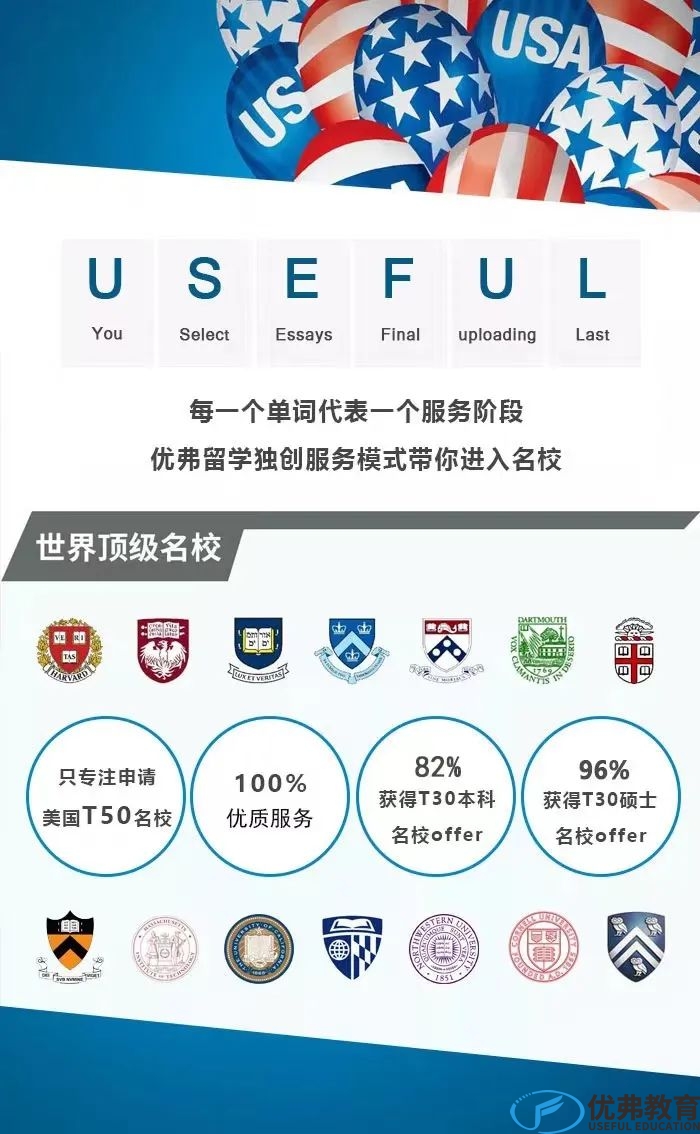看名校文書(shū)都長(zhǎng)啥樣?JHU招生官公布2025屆優(yōu)秀文書(shū),!
日期:2022-06-17 11:33:26 閱讀量:0 作者:b老師新一輪的申請(qǐng)季即將到來(lái),,優(yōu)秀文書(shū)到底都長(zhǎng)啥樣?被名校錄取的文書(shū)都是辭藻豐富的嗎,?JHU招生官公布2025屆優(yōu)秀文書(shū),。一起來(lái)瞅瞅吧!

1,、Stepping Out of my Comfort Zone
(by Samuel)
If you told me I would be playing a sport called squash at 11 years old, I would call you crazy. But in seventh grade, I was at a new school 10 times bigger than my last one. I felt like a little fish in a big pond. I was quiet, withdrawn, and very introverted. A lot of the time, I stayed where I was comfortable.
During the first week of school, a group of people visited the school and they introduced themselves as Squashbusters. At that time, I’d only heard of Squash once before, but I didn’t really know what it was. Because the program combined the sport of squash with academic support, mentoring, and service opportunities, I decided to sign up. It’s been six years and this program has made a monumental difference in my life.
Being a part of SquashBusters is a program that really pushed me out of my shell to the point where I’ve grown accustomed to challenging myself. In SquashBusters, they tell us to push ourselves past our limits on the squash courts, but that mindset has transferred to other areas of my life as well. From team trips and tournaments to cringy karaoke moments and participating in eccentric traditions like our annual SquashBusters Olympics, my comfort zone has steadily grown larger. My peers brought out a side of me I didn’t even know existed. I haven’t transformed completely from introvert to extrovert, but I’ve become more social as the years go by.
At Hopkins, I want to do something similar. I want to try new things and embrace the campus traditions. Even though I will develop intellectually from the many academic classes and clubs/activities offered on campus, I feel as though a true community is birthed from exploring beyond what one’s used to. From traditions like Blue Jay Opening Day and the Spring Fair to the many world-changing clubs like the Amnesty International club and the Foreign Affairs Symposium, the different ways to be involved in the Hopkins community is limitless and invigorating and I can’t wait to be a part of the Hopkins family.
招生官點(diǎn)評(píng):Samuel的文章是對(duì)自己走出舒適區(qū)的反思,,這不僅是重要的人生課程,也是JHU學(xué)生每天都在做的事情,。我們的學(xué)生突破發(fā)現(xiàn)的界限,,在課堂內(nèi)外面臨挑戰(zhàn),并追求新發(fā)現(xiàn)的激情,。通過(guò)逐漸習(xí)慣于挑戰(zhàn)自己,,Samuel體現(xiàn)了這些特征,并且能夠?qū)⑺诒谇驁?chǎng)上學(xué)到的經(jīng)驗(yàn)應(yīng)用到他生活的其他領(lǐng)域,。他表明,,如果有機(jī)會(huì),鑒于各種學(xué)術(shù)和課外機(jī)會(huì),,他將在我們的校園里蓬勃發(fā)展,,并且他具備克服所面臨的任何挑戰(zhàn)的實(shí)力,。
Samuel(波士頓)自述:我對(duì)目前正在寫(xiě)論文的學(xué)生的建議是要記住,,初稿很少會(huì)寫(xiě)得很好,所以即使難以理解,,也要盡可能多地寫(xiě),。還要給自己很多時(shí)間來(lái)接受來(lái)自同齡人、老師甚至是自己的修改,。
2,、Left and Right Don't Exist
(by Stella)
The first lesson I learned as a student pilot is that left and right don’t exist. Maybe driving on a highway or in a parking lot, left and right is precise enough to describe the location and movements of slow-moving bikers, pedestrians, and cars. But at 36,000 feet in the air in a steel tube hurdling almost 200 miles an hour? Left and right just don’t cut it.
During one of my first flights in a small Cessna-182, my flight instructor ordered me to scan the horizon for approaching aircrafts. To my right, I caught a glimpse of one: another Cessna with maroon stripes, the sun’s reflection glinting off its windows. Gesturing vaguely to my two o’clock, I informed my flying instructor, “There’s a plane to the right.”
“No, to your right. From his position, what direction does he see you?” From his angle, I was to his left. In that moment, I realized that perspective and precision of language is everything. The radio chirped: “Cessna One-Eight-Two Sandra, heading north to John Wayne Airport. Over.”
I navigate using my compass’s north, east, south, and west directions because every pilot’s vantage point differs from each other both vertically and horizontally, creating opposite perspectives. My right was that pilot’s left.
Through flying, I began to consider all points of view, regardless of my personal perspective.
Perhaps it was my ability to scan the horizon to communicate a single story, uniting contrasting outlooks, that drew me to my love for journalism and the diverse melting pot that was my community.
To me, journalism modernizes the ancient power of storytelling, filled with imperfect characters and intricate conflicts to which I am the narrator. As editor-in-chief for my school newspaper, The Wildcat’s Tale, I aim to share the uncensored perspective of all students and encourage my editorial groups to talk — and listen — to those with whom they disagree. Starting each newspaper edition with a socratic, round-table discussion, I ask the other journalists to pursue stories that answer the questions: why did this happen and where will it lead?
Expanding beyond the perspectives of my classmates, I began writing articles for the Korea Daily, and later, the Los Angeles Times High School Insider. I schedule interviews with city council candidates, young and old voters, and mayors of my town, obtaining quotes and anecdotes to weave into my writing. My interviews with both Democratic and Republican voters have taught me to thoroughly report polarizing-opposite opinions through an unbiased lens. As a journalist, I realized I cannot presume the opinions of the reader, but instead simply provide them with the tools necessary to formulate their own conclusions.
However, differences in perspective in my articles are not solely limited to politics. I found that in my suburban community, people love to read about the small-town hospitality of their own friends and neighbors. Quirky traditions, like our Fourth of July carnival clown and local elementary school’s Thanksgiving talent show, are equally as important to me as national headlines are. My favorite stories to publish are the ones taped onto fridges, proudly framed on the mom-and-pop downtown diner, or pinned into the corkboard in my teacher’s classroom. I discovered the size of my story does not matter, but the impact I leave on the reader does.
In my time as both a student pilot and journalist, I grew to love these stories, the ones that showed me that living life with blinders, can not only be boring, but dangerous. Whether I was 36,000 feet in the air or on ground level, by flying and writing, I realized that the most interesting stories of life come straight from the people most different from me.
招生官點(diǎn)評(píng):Stella在這篇文章的開(kāi)頭討論了她學(xué)習(xí)飛行的經(jīng)驗(yàn)。然而,,這則軼事并不是關(guān)于行為本身的,,因?yàn)檫@是她從經(jīng)驗(yàn)中學(xué)到的視角和觀點(diǎn)。然后,,她能夠?qū)⑦@些收獲與她生活的另一個(gè)方面聯(lián)系起來(lái)——她對(duì)新聞的熱愛(ài),。隨著她與新聞界分享更多關(guān)于她的方法和影響的信息,她明確表示,,飛行的經(jīng)驗(yàn)教訓(xùn)永遠(yuǎn)存在于她的工作中,。從在報(bào)紙編輯室聽(tīng)取他人的想法和觀點(diǎn),到從平衡和深思熟慮的角度看故事,,我們能夠了解到她如何處理自己的激情,,以及她的社區(qū)。這篇文章能夠通過(guò)與我們分享一些新的激情和擴(kuò)大她的一些影響來(lái)提升整個(gè)申請(qǐng),,但其主要重點(diǎn)是她如何能夠?qū)⒁淮谓?jīng)驗(yàn)教訓(xùn)應(yīng)用到生活的其他方面,。當(dāng)我們思考Stella將成為我們社區(qū)的什么樣的成員時(shí),這篇文章幫助我們理解她將是一個(gè)愿意傾聽(tīng),、學(xué)習(xí),、應(yīng)用這些知識(shí)并產(chǎn)生影響的人,。
Stella(洛杉磯)自述:我選擇寫(xiě)我最喜歡的兩個(gè)愛(ài)好,飛行和寫(xiě)作,,因?yàn)槲抑牢铱梢宰钫\(chéng)實(shí)地寫(xiě)我喜歡做的事情,。這篇文章記錄了我對(duì)看似日常任務(wù)和情況的思考過(guò)程和創(chuàng)造性方法,這是簡(jiǎn)歷中無(wú)法列出的,。我沒(méi)有寫(xiě)我認(rèn)為霍普金斯大學(xué)的招生團(tuán)隊(duì)會(huì)留下深刻印象的東西,,而是學(xué)會(huì)了專注于寫(xiě)一篇能抓住我個(gè)性的文章。在保持專業(yè)的同時(shí)用我自然的對(duì)話聲音寫(xiě)作是一項(xiàng)挑戰(zhàn),,但也是有益的,。
3、Queen's Gambit
(by Dante)
No, Dante. Stop, think, and look at the entire board.
I was thoroughly confused. I thought I had procured the complete solution to this elaborate chess puzzle. What am I missing? A knight fork, a bishop move? Am I in check? After a quick glance at the left side of the board, I slapped my hand on my head as I suddenly realized what my chess coach was telling me. My queen was sitting unused, positioned all the way on the other side of the board, and I had no idea. If I were to sacrifice my queen, the opposing rook would be forced to capture it, allowing me to finish the game in style with the illustrious “smothered mate.”
If you begin to look at the whole chessboard, then these puzzles will become a breeze for you.
Ever since that chess lesson, those words have stuck. Indeed, my chess skills improved swiftly as my rating flew over the 1000 Elo threshold in a matter of months. However, those words did not merely pertain to chess. Looking at the whole picture became a foundational skill that I have utilized throughout my life in school and other endeavors. I particularly remember making use of it on the soccer field.
Now, I’m no Arnold Schwarzenegger. Weighing in at a monstrous 125 pounds and standing 5 foot 8 inches, my opponents made it a habit to tackle me to the ground. Once again, I found myself face to face with the defender, and before I knew it, I crumbled to the ground, left isolated and dispossessed. Laying dazed on the pitch, my mind flashed back to the chessboard. It occurred to me that soccer, much like chess, relies on the proper position of the many pieces that combine to create a finished strategy. The “whole picture” of soccer is not just how fast or strong one is or how many tackles you put in; that is only one element of the puzzle. The intelligence and creativity needed in a playmaker is also an essential part of a well-rounded soccer team. I realized that my most significant advantage would always be my in-depth understanding of the game of soccer—where to pass the ball, when to make a run, if the ball should be in the air or driven. I picked myself off the ground, and when that same defender came barreling towards me again, I was zoned in, oblivious to the noise around me. I chipped the ball into the open space right behind him, knowing my teammate would run into the space without even looking. From then on, I continued to hone my skills through intense practice to become the best playmaker I could be, working in conjunction with my faster and stronger teammates to become a well-balanced, unified team.
Through chess and soccer, I have discovered that every piece in a puzzle has a purpose. This new perspective has enhanced my ability to stop, stand back, and analyze the whole picture in the many dimensions of my life. In my scientific studies, it was not enough to examine just one C. reinhardtii cell, but it was necessary to zoom out the microscope to capture all of the thousand cells to truly understand quorum sensing and its consequences. In my studies of music, it was not enough to listen to the melody of the finale of Beethoven’s 9th symphony, but one must realize that the true beauty of the composition lies in the whole orchestra handing off this simple melody to every instrument. All these facets—music, research, soccer, chess—are not only completed puzzles but also parts of a greater whole: my life. Every aspect of myself matters as much as the other. As high school comes to an end, the pieces on my board are set, and I only have success in mind.
Your move.
招生官點(diǎn)評(píng):Dante的這篇文章向讀者清楚地表明,,他非常好奇,,并通過(guò)展示而非講述來(lái)表達(dá)自己的興趣。他深思熟慮地將他從國(guó)際象棋中學(xué)到的經(jīng)驗(yàn)教訓(xùn)與他在足球場(chǎng)上的表現(xiàn)聯(lián)系起來(lái),,并很好地專注于他所學(xué)到的東西,,而不是對(duì)整個(gè)國(guó)際象棋比賽或足球比賽逐一復(fù)述。讀者還可以看到Dante可以將他在一門學(xué)科中學(xué)到的知識(shí)應(yīng)用到另一門學(xué)科中,,這對(duì)于在霍普金斯大學(xué)取得學(xué)業(yè)成功至關(guān)重要,。我們的招生委員會(huì)可以閱讀這篇文章,并找到明確的證據(jù)表明Dante的思維方式將幫助他在我們的跨學(xué)科課程中茁壯成長(zhǎng),。
Dante(佛羅里達(dá)州)自述:在整個(gè)大學(xué)申請(qǐng)過(guò)程中,,“整體形象”始終是一個(gè)重點(diǎn)。我從字面上接受了這個(gè)建議,。我[用這篇文章]作為一種將我的申請(qǐng)中的所有內(nèi)容聯(lián)系在一起的方式,,給所有內(nèi)容一個(gè)更有意義的目的,而不僅僅是一份課外活動(dòng)的清單,。我想讓委員會(huì)知道我所做的一切不僅僅是為了填寫(xiě)簡(jiǎn)歷,,而是我想向他們展示我所做的一切都是有意義的,并且是全神貫注和努力完成的,,以便讓自己變得更好,。
以上3篇文書(shū)供大家參考,希望對(duì)大家申請(qǐng)者們有所幫助,。
優(yōu)弗教育首次獨(dú)家采用“雙團(tuán)隊(duì)”導(dǎo)師模式-“DoubleTeam”,。團(tuán)隊(duì)一:由兩位主導(dǎo)師組成為“首席專家顧問(wèn)團(tuán)隊(duì)”。團(tuán)隊(duì)二:由三位導(dǎo)師組成為“規(guī)劃執(zhí)行團(tuán)隊(duì)”,。在優(yōu)弗獨(dú)具特色的“雙團(tuán)隊(duì)”指導(dǎo)下,,具備專業(yè)性,聯(lián)動(dòng)性以及高執(zhí)行力這三大特點(diǎn),,讓整體規(guī)劃突破傳統(tǒng)留學(xué)導(dǎo)師架構(gòu),,真正突顯每一位導(dǎo)師在學(xué)生身上可發(fā)展力,,可塑造力,從而將服務(wù)做實(shí),,做精,,做細(xì)!??!







